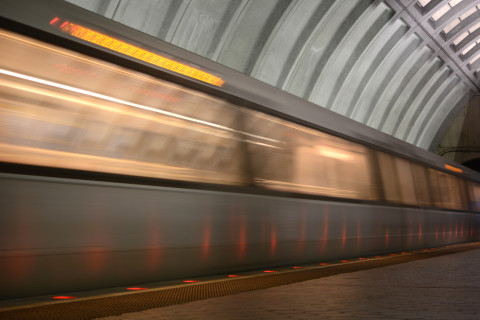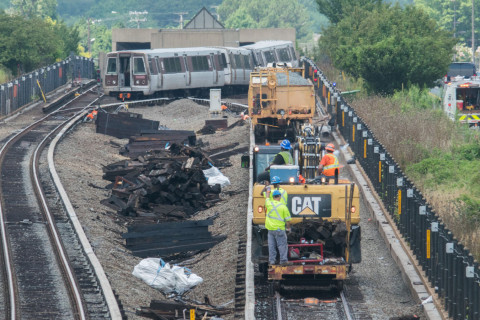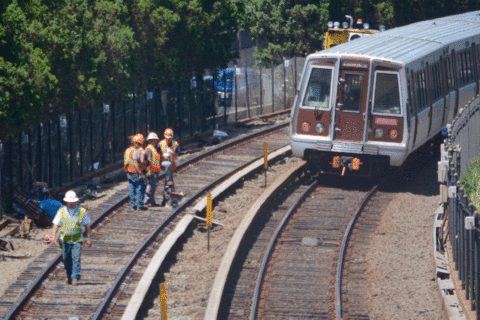WASHINGTON — For decades, Metro rail yard employees haven’t been following a basic safety step to prevent parked trains from unexpectedly rolling away: applying the handbrake, a new federal investigation has found.
The Federal Transit Administration, which has been charged with overseeing safety at Metro, began inspecting Metro’s rail yards after three runaway railcar incidents last year.
In a report released Wednesday, federal inspectors found a “widespread lack of compliance with (Metro’s) internal rules” for passenger cars and maintenance equipment stored in its rail yards.
According to the report, Metro workers who have been with the system for nearly 40 years told investigators that Metro properly secured all cars during the system’s earliest years. But when more railcars began to arrive in the late 1970s and early 1980s, the regular movement of trains in the rail yards led Metro to “not prioritize time or availability of its personnel to set and release handbrakes during overnight layovers on stored rail cars.”
Metro’s first rail segments opened to the public in 1976 and the system expanded rapidly in the years that followed.
Investigators found that supervisors even actively discourage workers from using handbrakes, the report said.
“(Inspectors) noted universal misunderstandings among (Metro) employees regarding the agency’s rules and procedures for vehicle storage and securement, and the specific safety risks that they are designed to address. Further, due to challenges in applying handbrakes, the length of time required to apply them, and the difficulty in confirming their disengagement before moving trains under power, supervisors in rail transportation and car maintenance generally discourage use of these safety devices,” the report said.
Unsecured trains pose a significant safety risk because the cars can roll away and collide with workers, other trains or equipment.
The FTA recommended that Metro provide more training for workers, clearly stated rules and procedures plus redundant safety measures. Overall, the FTA issued six findings and six required actions for Metro.
3 rollaways, no injuries
Unsecured railcars is not a problem unique to Metro. A collision in Chicago’s rail system two years ago injured 34 people and caused $6.4 million in damage and resulted in a nationwide safety advisory.
But Metro has had three significant rollaways since then.
In April 2014, a maintenance vehicle rolled into a work area between Van Ness and Tenleytown stations. The vehicle stopped after about 500 feet, and no one was hurt.
In January 2015, a maintenance vehicle rolled away in the Shady Grove rail yard and struck a car that was parked across the storage track. No one was hurt, and there was minor damage.
In December 2015, a pair of railcars rolled away in the New Carrollton rail yard after being separated from another pair for storage. No one was hurt.
Federal investigators who inspected rail yards earlier this year said Metro train operators “do not apply handbrakes to rail vehicles stored in rail yards overnight as required in WMATA’s safety rules and procedures. In addition, (FTA) inspections found that railcars were not being separated by the required distance when stored in rail yards.”
Additional safety measures were also not in use on vehicles stored longer than two weeks, the report found.
And Metro did nothing to ensure that standard procedures were followed, the report said.
Metro has also failed to update its train operator manuals to reflect the newest cars in the system, the shiny 7000 series. The FTA said Metro must update the manuals to include “the location and automatic operation of handbrakes.”
When the FTA asked Metro to come up with corrective action plans last winter, federal inspectors said there was no satisfactory response. Finally, a schedule for changes to the official rules was provided in March, but the plans for a permanent safety order were delayed after Metro hired a new chief safety officer.
Metro told the FTA it still plans to address the issue.








